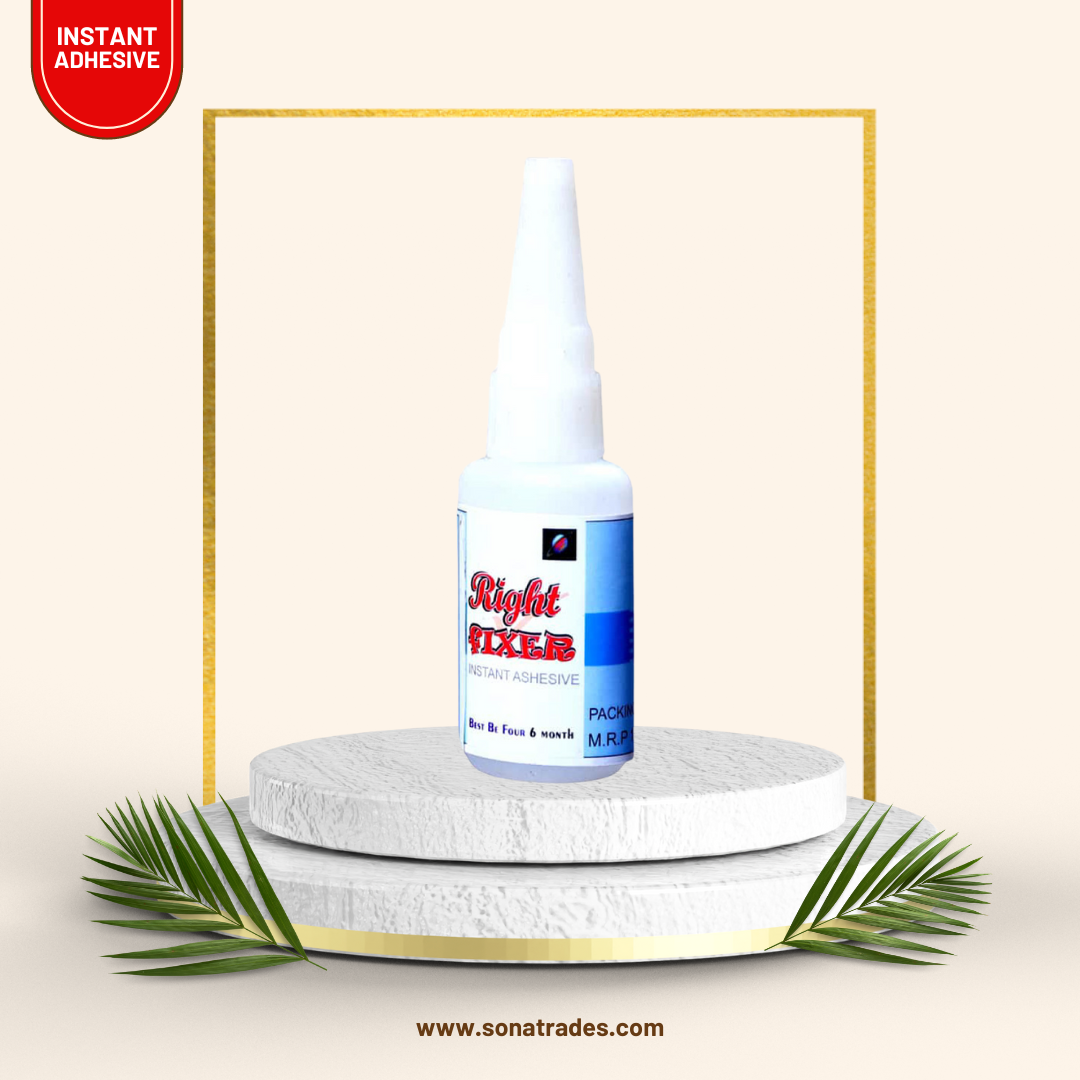Adhesive Glue

Adhesive SR
Adhesive SR is a high-strength, solvent-based rubber adhesive ideal for bonding materials like leather, foam, and rubber.

Adhesive Cy
Adhesive CY is a fast-curing, cyanoacrylate-based adhesive ideal for bonding Footwear,plastics, metals, ceramics, and other non-porous materials.
**Adhesive Glue – The Ultimate Solution for Bonding and Repair**
Adhesive glue is an indispensable tool in various industries, homes, and workplaces. Whether you’re tackling DIY projects, fixing broken objects, or handling professional repairs, having a reliable adhesive glue is essential. Available in various formulations and strengths, adhesive glue is designed to bond materials together efficiently and securely, offering a simple yet powerful solution for all your bonding needs. From crafting and carpentry to construction and household repairs, **adhesive glue** is the go-to solution for achieving strong, long-lasting bonds.
### What is Adhesive Glue?
Adhesive glue is a substance used to bind two or more materials together by creating a strong, often permanent, bond between them. There are many types of adhesive glues, each formulated for specific materials and applications. The most common types include super glue (cyanoacrylate), epoxy, hot glue, and PVA (polyvinyl acetate) glue, with each type offering unique bonding properties. Adhesive glues are used across a wide range of industries, including construction, woodworking, automotive, and crafting, as well as for general household repairs.
### Types of Adhesive Glue
1. **Super Glue (Cyanoacrylate Glue)**
Super glue is one of the most popular and widely used adhesive glues due to its fast-acting bonding properties. It can bond a variety of materials, including metal, plastic, rubber, ceramic, and wood, in just a few seconds. This instant-bonding adhesive is perfect for small, quick repairs or delicate items that need precision bonding. Its strong hold ensures that the bonded surfaces stay together for a long time, making it ideal for minor household repairs, model building, and small DIY projects.
2. **Epoxy Glue**
Epoxy glue is a two-part adhesive composed of resin and hardener, which, when mixed, creates an incredibly strong bond. Epoxy glue is highly durable and resistant to moisture, chemicals, and extreme temperatures, making it ideal for heavy-duty repairs, construction, and industrial applications. It can bond a wide range of materials, including metal, wood, glass, plastic, and ceramics, making it a versatile choice for both indoor and outdoor use. Epoxy glue takes longer to set than super glue, but it provides a stronger, more durable bond.
3. **PVA Glue (White Glue)**
PVA glue, commonly known as white glue or school glue, is a water-based adhesive that is widely used in crafts, woodworking, and paper bonding. It dries clear and is easy to clean up with water, making it a popular choice for arts and crafts projects, especially with children. PVA glue is great for bonding porous materials like paper, fabric, and wood, but it may not work well on non-porous surfaces like metal or plastic. It’s non-toxic and ideal for home use.
4. **Hot Glue**
Hot glue is a fast-acting adhesive that is melted and applied using a hot glue gun. It bonds quickly and can be used on a variety of materials, including fabric, plastic, wood, and ceramics. Hot glue is commonly used in crafting, DIY projects, and quick fixes around the house. Its ability to bond a wide range of materials makes it versatile, but it is best suited for temporary or less demanding applications as it may weaken over time under stress or heat.
### Benefits of Using Adhesive Glue
1. **Strong and Reliable Bonds**
Adhesive glue is known for creating strong, durable bonds between materials, ensuring that the connected surfaces stay intact even under pressure. Whether you’re gluing wood, plastic, metal, or fabric, adhesive glue offers a level of reliability that traditional mechanical fasteners may not provide. Many modern glues are designed to resist water, heat, and chemicals, further enhancing their durability.
2. **Versatility**
One of the greatest advantages of adhesive glue is its versatility. Different types of glue can be used for a wide range of materials, from paper and fabric to metal and glass. Whether you’re working on a small craft project or a large construction task, there’s an adhesive glue that can meet your specific bonding needs.
3. **Easy Application**
Adhesive glue is typically easy to apply, even for beginners. Most types of glue come in user-friendly packaging, including tubes, bottles, and glue guns, which make them convenient to use for any project. Many glues also feature fast drying times, allowing you to complete your repairs or projects quickly.
4. **Cost-Effective Solution**
Adhesive glue is a cost-effective option for bonding materials, often more affordable than other types of fasteners like nails, screws, or welding. It can also save money by allowing you to repair broken objects instead of replacing them. A small tube or bottle of adhesive glue can go a long way, making it a budget-friendly option for both home and professional use.
5. **Seamless Finish**
Unlike mechanical fasteners, adhesive glue offers a seamless finish, without visible screws, nails, or rivets. This makes it ideal for projects where aesthetics are important, such as crafting, furniture building, or model-making. The glue dries clear, leaving no trace of the bond behind.
### Conclusion
Adhesive glue is an essential tool for both everyday repairs and specialized projects. Its ability to create strong, lasting bonds between a wide variety of materials makes it indispensable in homes, workshops, and industries alike. With different types of glue available, from super glue and epoxy to PVA and hot glue, there’s a solution for every application, whether you need a fast fix or a heavy-duty bond. Affordable, easy to use, and incredibly versatile, adhesive glue is the ultimate bonding solution for all your needs.